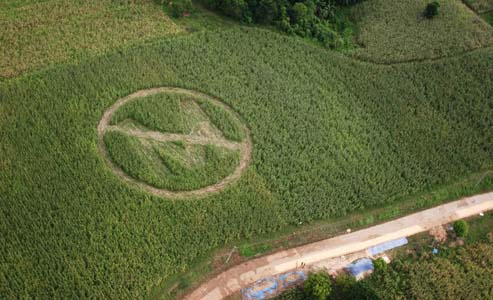“Atrazine can’t be sprayed in Europe because it contaminates groundwater, but it remains widely used in the U.S., where the EPA endorsed its continued use as recently as 2006, based on a scientific review from 2003. Federal records show the review was heavily influenced by industry and relied on studies financed by Syngenta, a Swiss-based company that manufactures most of the atrazine sprayed in the U.S.”
Alarmed by latest research, the Obama administration is conducting a broad review of toxic weed killer atrazine that could lead to tighter restrictions

John Kiefner prepares his boom sprayer for cleaning on his Manhattan, Ill., farm. (Chicago Tribune)
Despite growing health concerns about atrazine, an agricultural weedkiller sprayed on farm fields across the Midwest, most drinking water is tested for the chemical only four times a year — so rarely that worrisome spikes of the chemical likely go undetected.
High levels of the herbicide can linger in tap water during the growing season, according to more frequent tests in some agricultural communities.
Spread heaviest on cornfields, atrazine is one of the most commonly detected contaminants in drinking water. Studies have found that exposure to small amounts of the chemical can turn male frogs into females and might be more harmful to humans than once thought.
Read moreUS: Gender-Bending Chemical Atrazine Contaminates Public Water Supply
